Gather around children, for you shall hear a sad story of bullying, bossing and defamation in Czechia, the sole victim of which is the local martyr saint of Olomouc, nanotechnology professor and entrepreneur, Radek Zboril. You may have read the back story, with the guest post by two of his colleagues, Tomas Fürst and Michal Botur, denouncing the manipulations of the so-called Mössbauer spectra, which by now resulted in 3 retractions: in JACS (Hermanek et al 2007), in Nature Communications (Tucek et al 2016) and in Catalysis Today (Kmentova et al 2019), all due to the institutional investigation by Zboril’s academic employer, the Palacky University of Olomouc.
But now the publishers Elsevier and ACS have enough of the Olomouc University’s meddling, they took over the investigation and concluded that there was no misconduct. Apparently, because Zboril provided some replacement raw data, unrelated to the criticised figures but enough for the academic editors and publishers to close the case. Zboril, armed with the journals’ “expert” whitewashing, is presently suing the dean of Olomouc Martin Kubala for “bullying” and “defamation”.
An investigation of Zboril’s research was done a year ago by the Ethics Committee of the Faculty of Science at the Palacky University of Olomouc (EC FoS UP), its report, available to me, was submitted to the dean on 30 April 2020. Zboril was contacted but never denied the veracity of the report, its translation and the emails I quote.
The Ethics Committee’s report had three parts. The first part determined ethics violations in the now retracted Tucek et al Nature Communications 2016 (read more here). The second part found “Analogous problems in further articles“, two of which are the topic of an interesting email exchange I will share below. The part 3 was about hidden conflicts of interest.
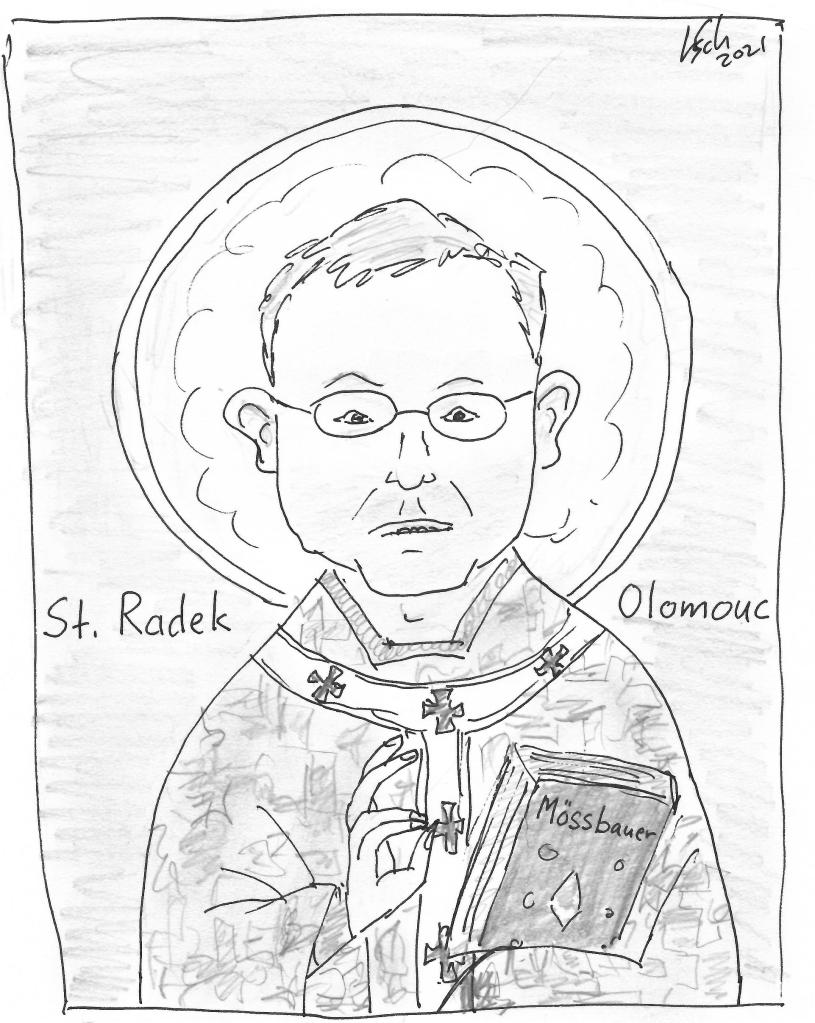
“I do not feel any conflict of interests“
In brief, Zboril is one of the two owners of the local company Nanomat, and holds 25% of the Czech company Nano Iron, the latter described as “a worldwide leading producer and dealer of iron-based nanoparticles“. Nano Iron was also partner of the NANOREM consortium, an FP7 project funded by the EU Commission with €14 million. The investigator found:
“Using the key words “iron” and “nanoparticles” I scanned the articles by prof. Zbořil in the database Web of Science and found 14 articles on this topic declaring “no competing financial interests“ etc., and another 8 articles where the authors tested or used the material (variously referred to as Nanofer 25, 25S, 25P, 25N)
produced and sold by the company co-owned by prof. Zbořil. For most of the articles, the authors state “Declaration of interest: none“. Any statement in relation to the conflict of interest is completely missing in another 16 articles – even though it can be traced that the guidelines for the authors require this!“
Zboril saw it differently, the report quotes him:
“…I do not feel any conflict of interests. It is solely up to the editors to assess whether there is a conflict of interests or not. As you may know, doc. [xxxx] has already contacted the editors of the journals concerned with his denouncement. However it is full of conspiracies leading to deliberate slander of myself in the scientific community and I have already taken legal action. [….] I want to emphasize once again that only the editors of the journal are in charge of assessing a possible conflict of interests. None of the editors have asked me to complete information about the possible conflict of interests in the form of Corrections yet. It may mean that there is no conflict and the studies were used for scientific purposes only, without any profit for me personally or the company NanoIron s.r.o.“
The investigators disagreed and found that “the editors cannot assess a conflict of
interests unless the corresponding author provides them with the relevant information. Moreover, the corresponding author is in charge of the declaration of a conflict of interests of all co-authors.” They attested Zboril regarding his omission of financial conflicts of interest
“a gross violation of the Code of Ethics for Employees and Students of Palacký University In Olomouc”
The recommendations were these:
“This Committee recommends to the Dean FoS UP to ask the relevant VPRO and VR FoS UP to consider removing from prof. Zbořil the right to train students of the Faculty of Science UP.
We further recommend that the Dean FoS UP lets the Scientific Council FoS UP consider the possibility of informing the journals in K01b about the fact that the authors are not able to provide the source data to Moessbauer spectra in the mentioned articles and to disprove the doubts about their credibility.Within K01c, EC FoS UP recommends that the Dean FoS UP entrusts prof. Zbořil to inform all editors of all journals, in which he has published studies about substances produced by Nano Iron s.r.o. since 2010, about his co-ownership of the company and close relations with RCPMT and the company NanoIron s.r.o. as soon as possible.”
There were of course no corrections of that kind as of today.
The ethics committee’s report also informed the dean the following about several of Zboril’s papers:
“EC FoS UP states the non-compliance of prof. Zbořil with the committee. He does not provide data to any of the above mentioned articles upon request. The Office of the Rector has definitely concluded it by a decision in which it refers to the inability of the entity to identify specific data with 100% certainty (https://www.dzurnal.cz/wpcontent/uploads/2020/01/odmitnuti-zadosti.pdf). The team of prof. Zbořil rejects the analyses of prof. [xxxx] and tries to replicate the process of producing published spectra on data relevant to the study published in Nature Communications and not on data presented in the seven other publications. […]
EC FoS UP cocludes that prof. Zbořil does not have the source data for these publications, which is confirmed by a legal analysis.
With regard to this situation and the reports of experts on Moessbauer spectroscopy, mentioned in the first part of the initiative (K01a), EC FoS UP declares that it cannot perform or provide a detailed external analysis of individual Moessbauer spectra and therefore cannot clearly determine whether there was an ethical error in the way the Moessbauer spectra were delat with in these articles.
1) Nevertheless as in the conclusions to the initiative K01a we need to say that the inability (or unwillingness) to provide the primary data constitutes a violation of the Code of Ethics for the employees and students of Palacký University in Olomouc (paragraph 5, Part III: “The researcher shall keep the primary data and documentation after publishing his/her results for a usual period in the relevant field, unless prevented by other legitimate obligations or regulations.“).“
“Inappropriate to share private files“
The university investigation hit a cul-de-sac, simply because Zboril refused to release the raw data for his very recent papers. Ah, but how good that ACS and Elsevier took over. It seems, the publishers determined that the Olomouc investigators are a bunch of ignorant Eastern European rubes who stick their unwashed fingers in things they have no business sticking them in.
This email was sent to the Dean Kubala on 31 March 2021 by Peter Licence, professor of chemistry at the University of Nottingham in UK and Executive Editor of ACS Sustainable Chemistry and Engineering:
“Our office investigated the presented concerns regarding the Mossbauer spectroscopy data in the following ACS Sustainable Chemistry and Engineering articles:
A)- Iron-Oxide-Supported Ultrasmall ZnO Nanoparticles: Applications for Transesterification, Amidation, and O-Acylation Reactions: Gade, Vilas B.; Rathi, Anuj K.; Bhalekar, Sujit B.; et al. ACS SUSTAINABLE CHEMISTRY & ENGINEERING Volume: 5, Issue: 4, Pages: 3314-3320. Published: APR 2017. (https://doi.org/10.1021/acssuschemeng.6b03167)
B)- Zero-Valent Iron Nanoparticles Reduce Arsenites and Arsenates to As(0) Firmly Embedded in Core-Shell Superstructure: Challenging Strategy of Arsenic Treatment under Anoxic Conditions: Tucek, Jiri; Prucek, Robert; Kolarik, Jan; et al. ACS SUSTAINABLE CHEMISTRY & ENGINEERING Volume: 5, Issue: 4, Pages: 3027-3038. Published: APR 2017. (https://doi.org/10.1021/acssuschemeng.6b02698)
After reviewing the original data sets provided by the authors, the narrative descriptions of data processing methods employed, and the data processing methods applied in the generation of journal figures, we find no evidence to support claims of data manipulation. As such, the journal will not be pursuing retraction or correction of these articles, and the journal considers the case closed.“
Kubala replied and asked Licence and ACS to share “the data and descriptions of data processing methods provided by the authors“, explaining that Zboril refuses to share those with his own university. Licence retorted:
“Having sought confirmation from our ethics support team I now write to confirm that it would be inappropriate for our office to share private files that have been shared during our enquiries. I signpost you directly to the owner of the unpublished materials, which in this case is the corresponding author and their team.“
A similar thing happened at Elsevier. Eberhard Morgenroth, engineering professor at the Swiss Federal Institute of Aquatic Science and Technology and Editor-in-Chief of Water Research, sternly warned Kubala that the Olomouc misconduct investigation was wrong to find ethics violations:
“You had contacted me on January 3, 2021, with concerns regarding potential scientific misconduct and potential data fabrication related to your two following publications published in Water Research. Meanwhile I have completed my evaluation. See below my email to the authors. There is no indication of scientific misconduct and Water Research will not retract the two published papers. There are scientific concerns related to the extent of data treatment – but this is not an ethical issue and we will publish critical comments and reply from the authors to provide the readers of Water Research with this discussion.“
This was Morgenroth’s email to Zboril and coauthors (hyperlinks mine):
“I have contacted you in January 2021 regarding concerns that were raised regarding potential scientific misconduct and potential data fabrication related to your two following publications published in Water Research:
Kolarik, J., Prucek, R., Tucek, J., Filip, J., Sharma, V.K. and Zboril, R. (2018) Impact of inorganic ions and natural organic matter on arsenates removal by ferrate(VI): Understanding a complex effect of phosphates ions. Water Research 141, 357-365. 10.1016/j.watres.2018.05.024
Kralchevska, R.P., Prucek, R., Kolarik, J., Tucek, J., Machala, L., Filip, J., Sharma, V.K. and Zboril, R. (2016) Remarkable efficiency of phosphate removal: Ferrate(VI)-induced in situ sorption on core-shell nanoparticles. Water Research 103, 83-91. 10.1016/j.watres.2016.07.021
Meanwhile, you have provided me with the raw data and information on data treatment. And I have invited four experts on Moessbauer spectroscopy to evaluate the raw data, data treatment, and the published Moessbauer spectra.
Based on input from these expert reviewers and my own evaluation I come to the following conclusions:
(1) There is no indication of scientific misconduct and no indication of data fabrication. There is no reason for Water Research to retract the two published papers.
(2) The Moessbauer spectra presented in the two Water Research papers are not providing the raw data but are showing only data after data treatment using the software MossWinn. This makes it difficult for readers to judge the extent of data treatment. The application of MossWinn and the underlying statistical approach are clearly noted in the Material and Methods. The reviewers I have contacted raised significant concerns related to the data treatment. These concerns are not about scientific misconduct but about the suitability of the chosen approach. The readers of Water Research should benefit from being able to review the raw data, from the critical comments raised by the reviewers, and the responses provided by the authors. To allow for this, I have invited the reviewers to provide a “Comment” that will be published in Water Research. Once the Comment has been accepted, I will ask you, the authors, to prepare a “Reply” that will be published in Water Research back-to-back with the Comments. Comments and Replies are paper types we have in Water Research for such a situation of scientific disagreement. In the Reply it will be important for the authors to include their raw data as SI so that readers can review and can ultimately use their own judgement.“
So you see, it was not raw data for any of the published figures which Zboril provided to the Elsevier journal, but something else. ACS also confirmed it to me:
“ACS takes data ownership seriously. The data you mention was shared with ACS for review as part of an investigation to resolve a reader’s concerns. The data was not part of the original journal submission. The data remains the intellectual property of the authors and cannot be shared by ACS without the author’s permission. Requests for the data should be directed to the author.“
I pointed out to ACS that their reply means Zboril never shared any “original data sets” like Licence claimed, but some other data. Maybe repeated experiments, the Olomouc investigators hinted that Zboril’s lab was doing something like that. I take ACS’s silence as confirmation that I understood it correctly. Why was Licence acting dishonestly to misinform his Czech peer, and why did he and his colleague at Elsevier, Morgenroth, accept unrelated data as replacement, and even warned the Olomouc University that there was no misconduct? Neither of these two academic editors replied to my emails, also Zboril himself remained silent.
Maybe because Zboril is quite litigious?
“You face two lawsuits“
Kubala forwarded the emails from Morgenroth and Licence to Zboril and asked him to share the raw data, while referring to Water Research‘s data sharing mandate („This journal requires authors to deposit their research data in a relevant data repository and to cite and link to this dataset in their article“, and „Authors may be asked to […] comply with the open data requirements of the journal. Authors should be prepared to provide public access to such data, if practicable, and should be prepared to retain such data for a reasonable number of years after publication.“
Zboril replied:
“Dear Mr. Kubala,
As you must be well aware of, you face two lawsuits related to your long-term bullying and bossing. These lawsuits are in progress, with a further mediation hearing on the matter scheduled on Friday, April 16, 2021. You have repeatedly received information that I will not respond to any your requests pending the decision of the courts of the Czech Republic. You should realize that you are not my superior. Thus, I strongly recommend you to prevent any further communication with me! I should remind you that the editorial offices that investigated your allegations did not found any evidence of scientific misconduct or data fabrication. In my opinion, your allegation may bear the elements of defamation and false accusation, and I will consult with my attorney (cc) on the next legal steps related to your allegation. I do not think it is right that you are dragging Water Research editorial staff into running legal disputes in this way.
If you demand any data, ask the author who measured and processed them or the colleagues who tracked and reconstructed them in detail. At the same time, it is obvious from your previous actions that you are using the data to have them purposely manipulated, aiming to smear the representatives of the Czech Advanced Technology and Research Institute (CATRIN). It is also for these reasons that you face several lawsuits.
I appreciate the highly professional way in which the editorial office handled the issue and refuted the false accusation. Now, any further steps including possible data publication and their reproduction is a matter of discussion between the authors and the editors.“

And that was apparently it. Basically, the emails by Licence and Morgenroth will now be used in Czech courts as evidence that the Olomouc misconduct investigation was false and slanderous. The one rare time when a university took research misconduct seriously, the big publishers stepped in, warned the university to stay out of it, and not only covered up suspected data manipulation, up to breaking their own data sharing mandates, but even took the side of the cheater and provided him with their “expert” assessment to be used in court.
Now you know why every crooked university leadership prefers to outsource misconduct investigations to publishers, like here. Maybe if Kubala was not dean of a small university somewhere in Czechia, but of something significantly more substantial, like Harvard, Cambridge or Max-Planck Society, the publishers would have taken him seriously.
“This correction does not affect conclusions“
So please let me guide you briefly to what else Elsevier and ACS have corrected. I published previously Smut Clyde‘s investigation of Dharanaj Gopi‘s data fakeries. Which ACS occasionally corrected (“these corrections do not alter/affect any of the other results or conclusions“), and which Elsevier did nothing at all about. Gopi, who was even accused by his students of sexual harassment and enslaving, is a fine scientist and valuable customer in the eyes of Elsevier and ACS. But of course, the publisher services extended to that Indian fraudster were not a one-off.
Before we start with the first paper, this time from China: to be fair, the Editor-in-Chief of the Elsevier journal Nano Energy, the Georgia Tech professor Zhong-Lin Wang, fellow of all possible international societies, is an associate of research fraudster and predatory conference scammer Ashutosh Tiwari (read here and here). Wang publishes more research papers than most scientists can read in the same time period, which either means he is a superhuman mega-genius from another planet, or… draw your own conclusions.

Also to be fair, Elsevier is perfectly happy to have Wang on board. Because his journal publishes and then corrects top science like this:
Ruizheng Zhao, Zhao Qian, Zhongyuan Liu, Danyang Zhao, Xiaobin Hui, Guanzhong Jiang, Chengxiang Wang , Longwei Yin Molecular-level heterostructures assembled from layered black phosphorene and Ti3C2 MXene as superior anodes for high-performance sodium ion batteries Nano Energy (2019) doi: 10.1016/j.nanoen.2019.104037
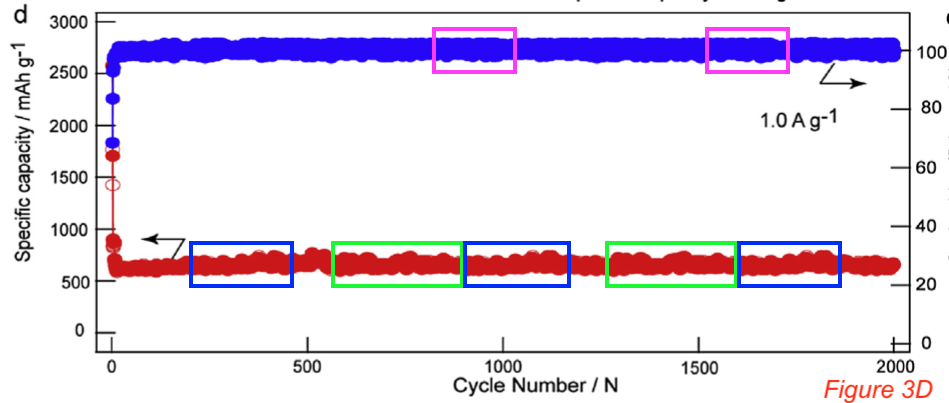
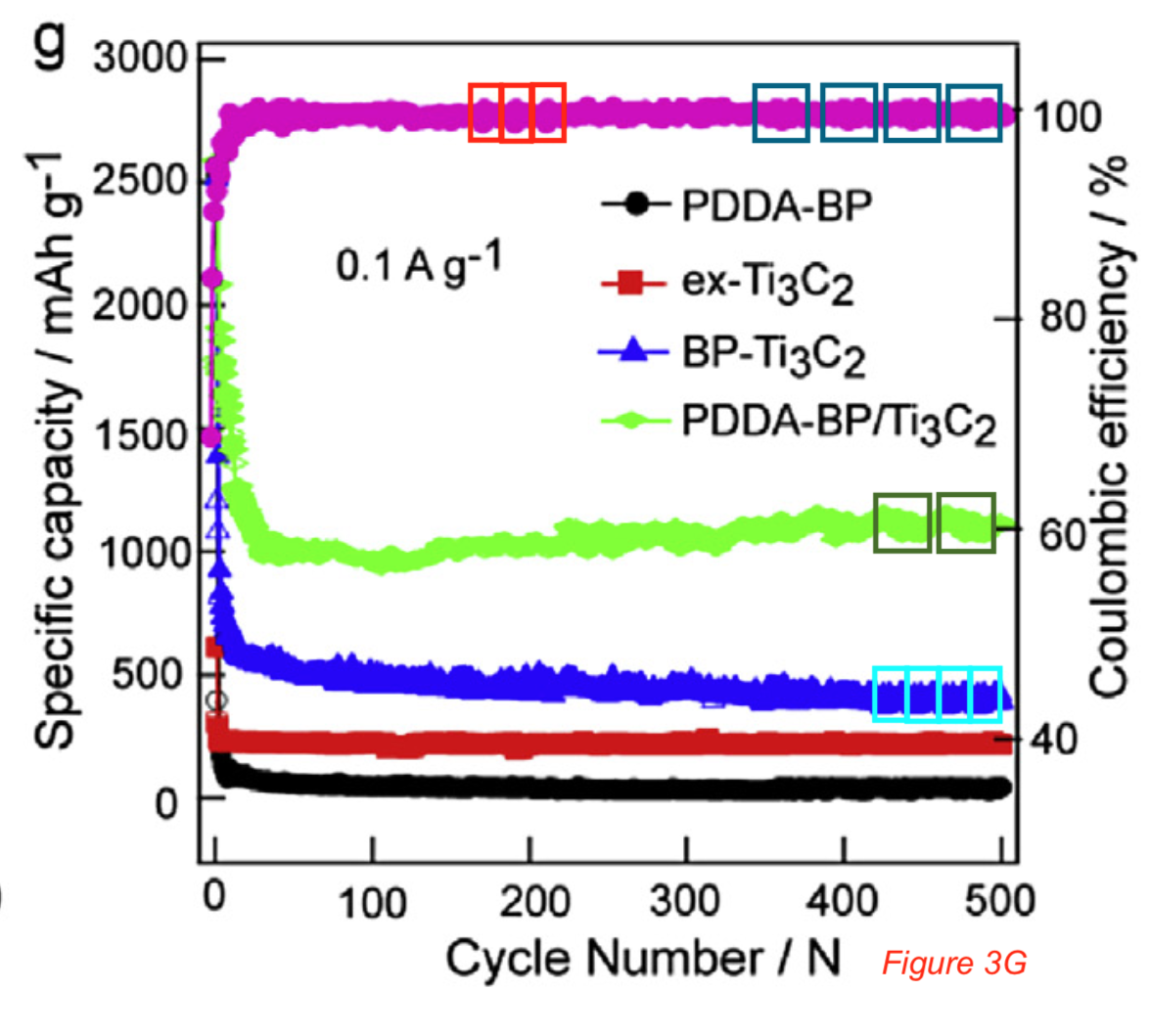
Corrigendum: “In the previously published paper, Fig. 3d, g and h were incorrect. The corrected figures are given below. Kindly note that this correction does not affect conclusions of this paper. The authors apologize for any inconvenience caused to the readers.“
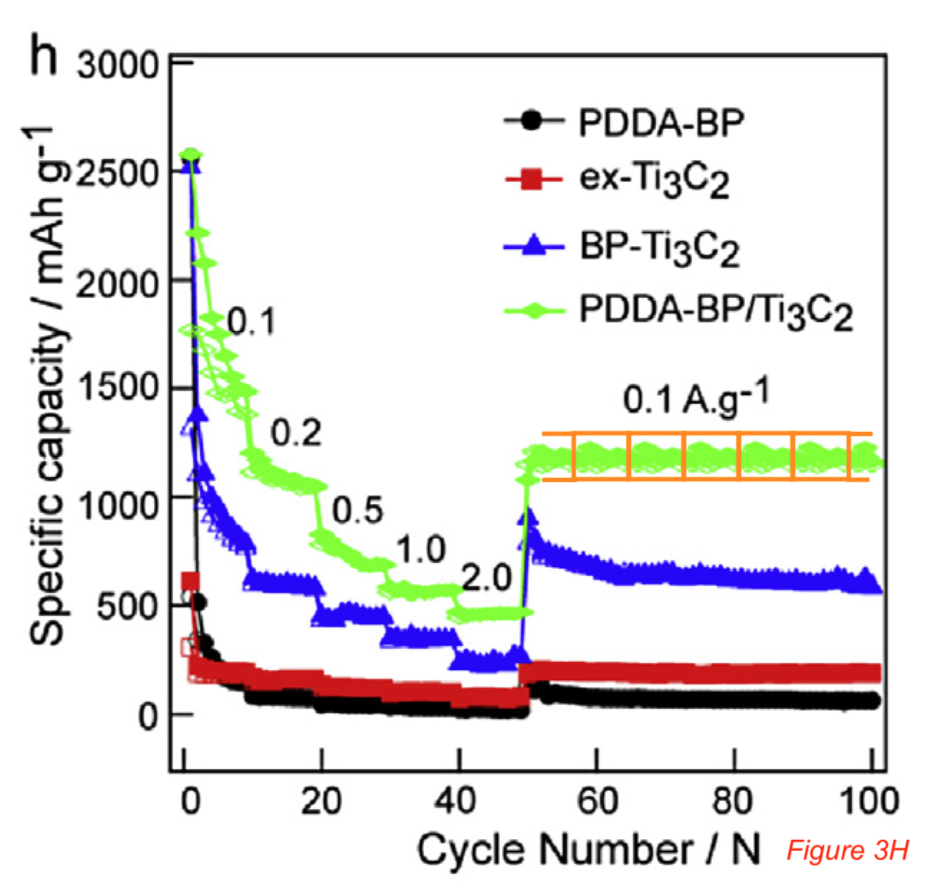
I hope you appreciate the ridiculously fake spectra. Here a Corrigendum for the same authors with same kind of fake spectra, but in ACS:
Ruizheng Zhao, Haoxiang Di, Chengxiang Wang, Xiaobin Hui, Danyang Zhao, Rutao Wang, Luyuan Zhang, Longwei Yin Encapsulating Ultrafine Sb Nanoparticles in Na+ Pre-Intercalated 3D Porous Ti3C2Tx MXene Nanostructures for Enhanced Potassium Storage Performance ACS Nano (2020) doi: 10.1021/acsnano.0c06360
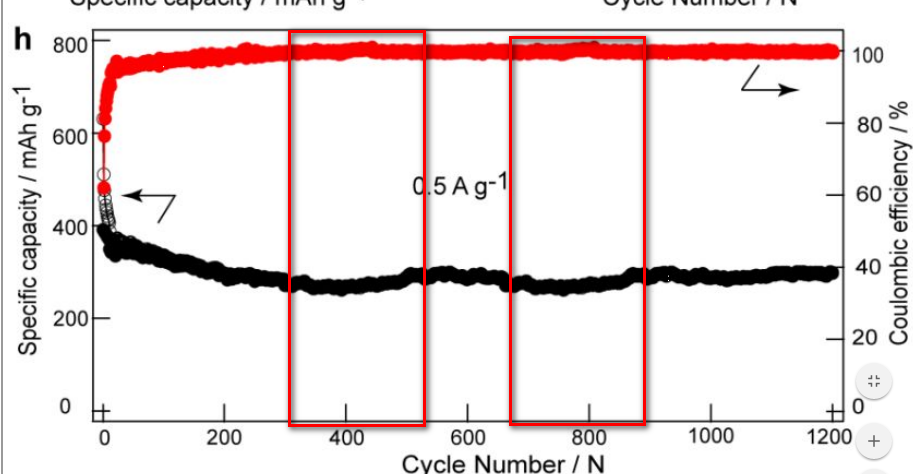

“In the previously published paper, ex situ X-ray diffraction patterns in Figure 6b were incorrect. The correct figure is shown above. The correction does not affect the conclusions of this paper. The authors apologize for any inconvenience caused to the readers.“
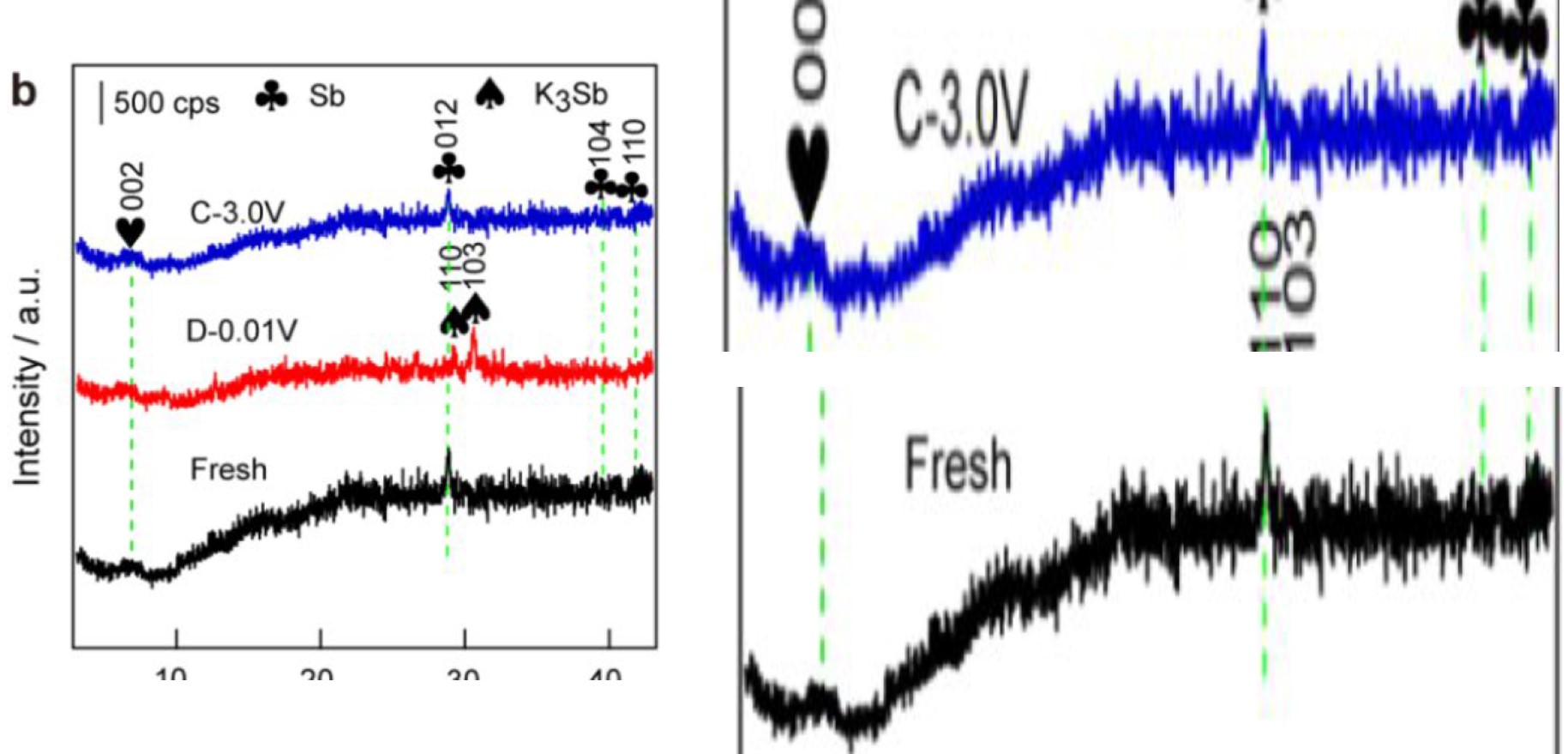
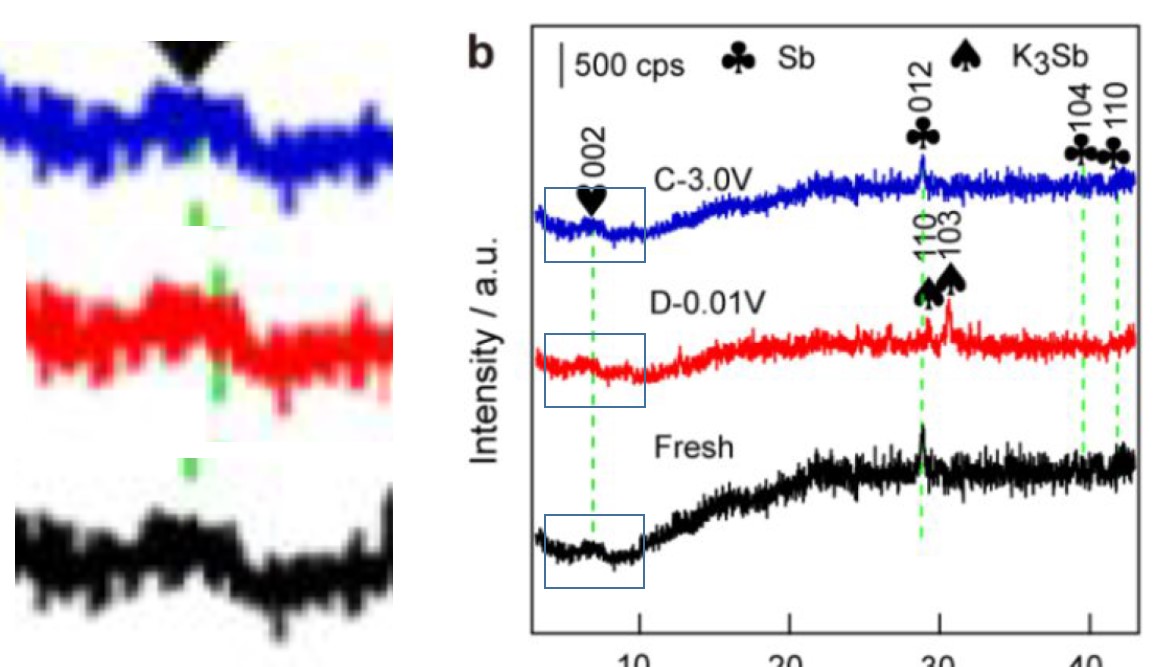
As you see, ACS did not correct Figure 4, because… because it is none of your business. The lead author Ruizheng Zhao has 4 more papers on PubPeer, her mentor and principal investigator Longwei Yin, professor at Shandong University, has 11 in total. Several of their papers were already eagerly corrected by Elsevier and other publishers. Case closed.
This publication by other scholars from China received a whooping three corrigenda in total:
Rui Hu, Taiki Furukawa, Xiangke Wang, Masaaki Nagatsu Highly concentrated amino group-functionalized graphite encapsulated magnetic nanoparticles fabricated by a one-step arc discharge method Carbon (2016) doi: 10.1016/j.carbon.2016.09.008
Previously, a double-published version of that paper was withdrawn 3 years after publication, also in 2019 a Corrigendum for Figures 2 and 7 was issued (“replacement of some values“). In 2020, these fake spectra were corrected:

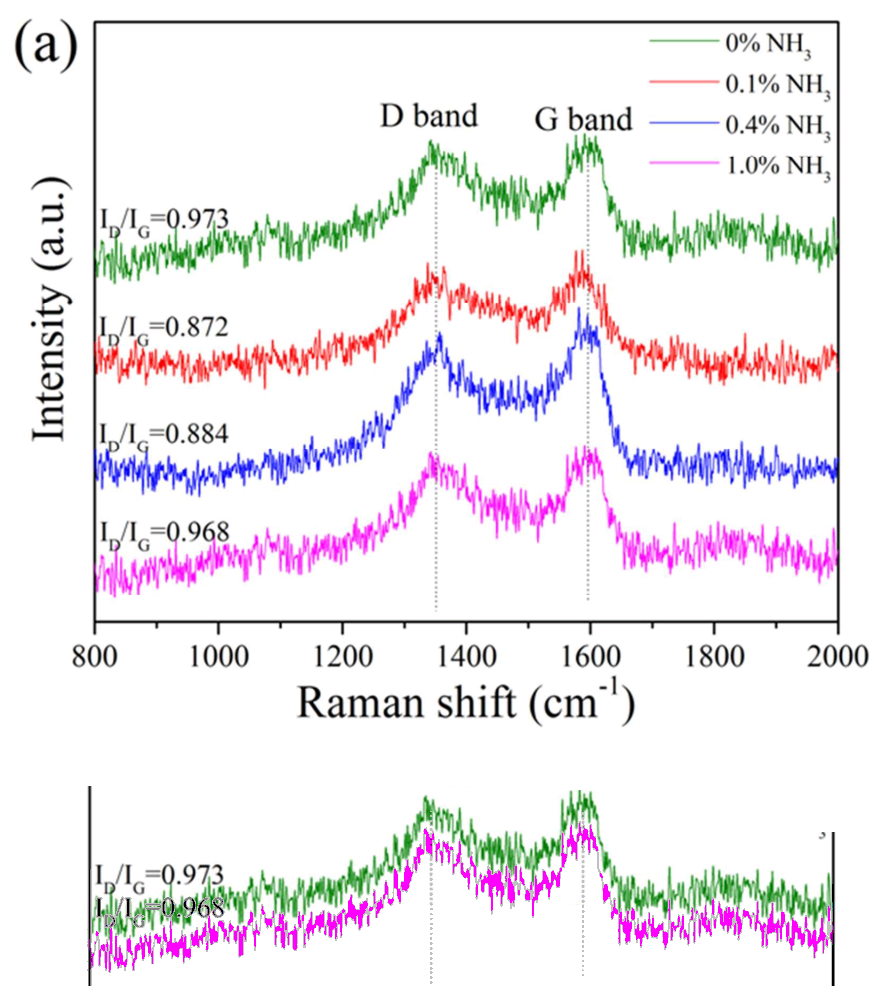
Case closed also here. The first author Rui Hui has 4 more papers with fake data on PubPeer, and Xiangke Wang…. Oh well that professor at the North China Electric Power University is a special case. Wang has by now over 70 papers on PubPeer, THIRTEEN retractions, and featured on my site here, here and especially here. But his university doesn’t mind, after all Wang publishes a lot:
“Professor Wang Xiangke has been rated as a “Highly Cited Researcher” in engineering technology and environment & ecology for three consecutive years in 2014, 2015 and 2016.“
Which is exactly why Elsevier still wants to trust Xiangke Wang and his partners.
Elsevier even issued stealth corrections for Fatih Sen, professor at the Dumlupinar University in Turkey (read about that industrial nanofabricator here, and on Elisabeth Bik’s blog). The corrigendum does not appear on main article’s page, and the case is closed also.
Betül Şen, Ayşenur Aygün, Aysun Şavk, Sibel Duman, Mehmet Harbi Calimli, Ela Bulut, Fatih Şen Polymer-graphene hybrid stabilized ruthenium nanocatalysts for the dimethylamine-borane dehydrogenation at ambient conditions Journal of Molecular Liquids (2019) doi: 10.1016/j.molliq.2019.02.003
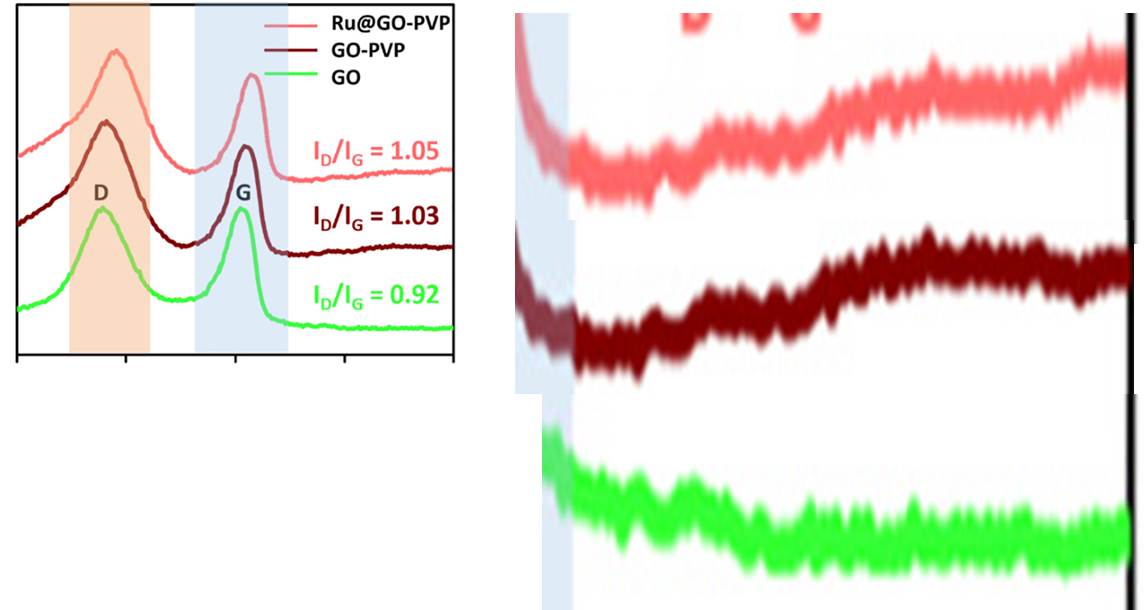

Sen’s hidden Corrigendum costs $39.95 to read, this is how Elsevier is taunting you all.
Now these same publishers and their academic editors have warned the Olomouc University to be careful with its unqualified investigations because Zboril is innocent of all suspicions of research misconduct.
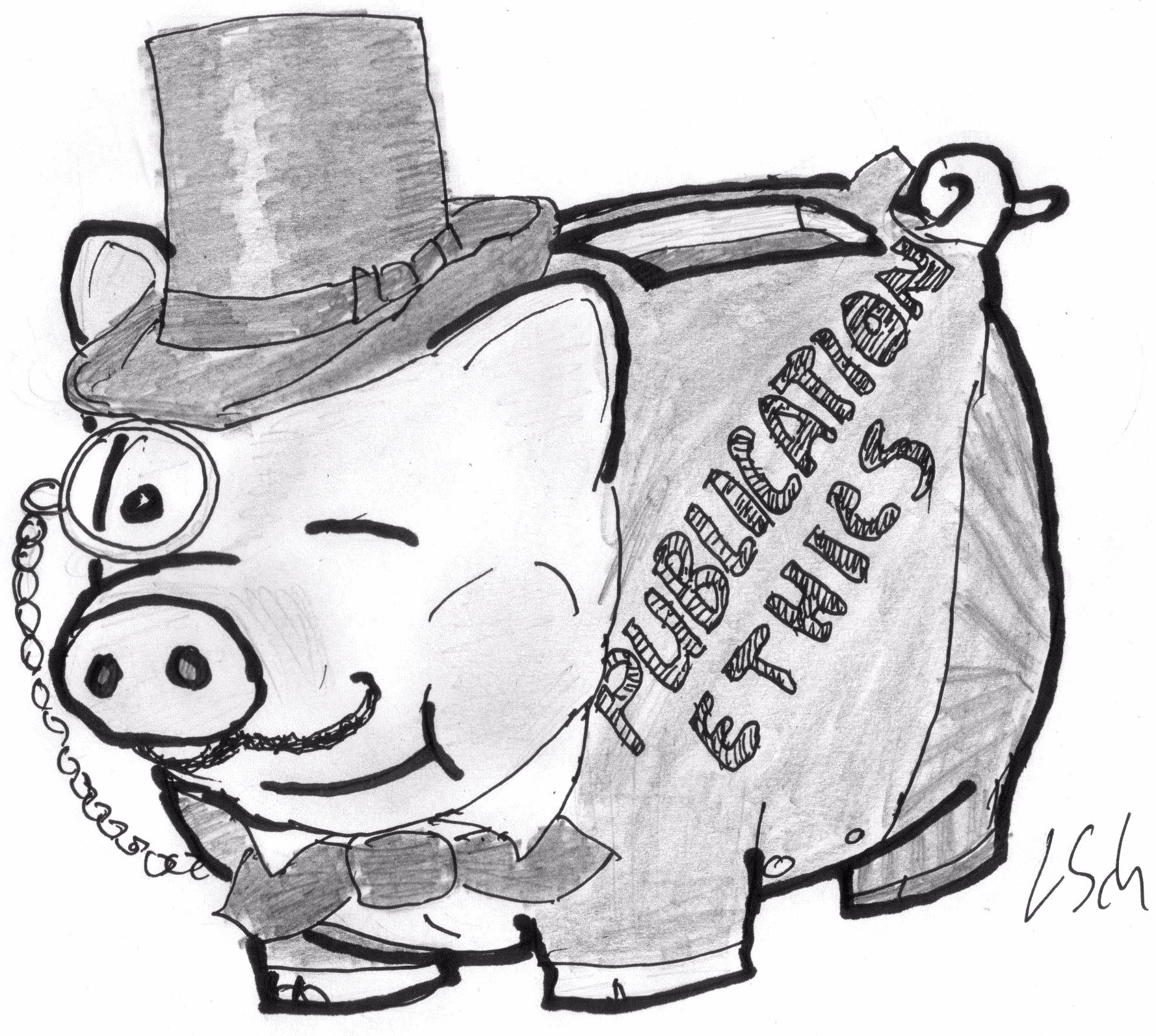
Donate!
If you are interested to support my work, you can leave here a small tip of $5. Or several of small tips, just increase the amount as you like (2x=€10; 5x=€25). Your generous patronage of my journalism will be most appreciated!
€5.00

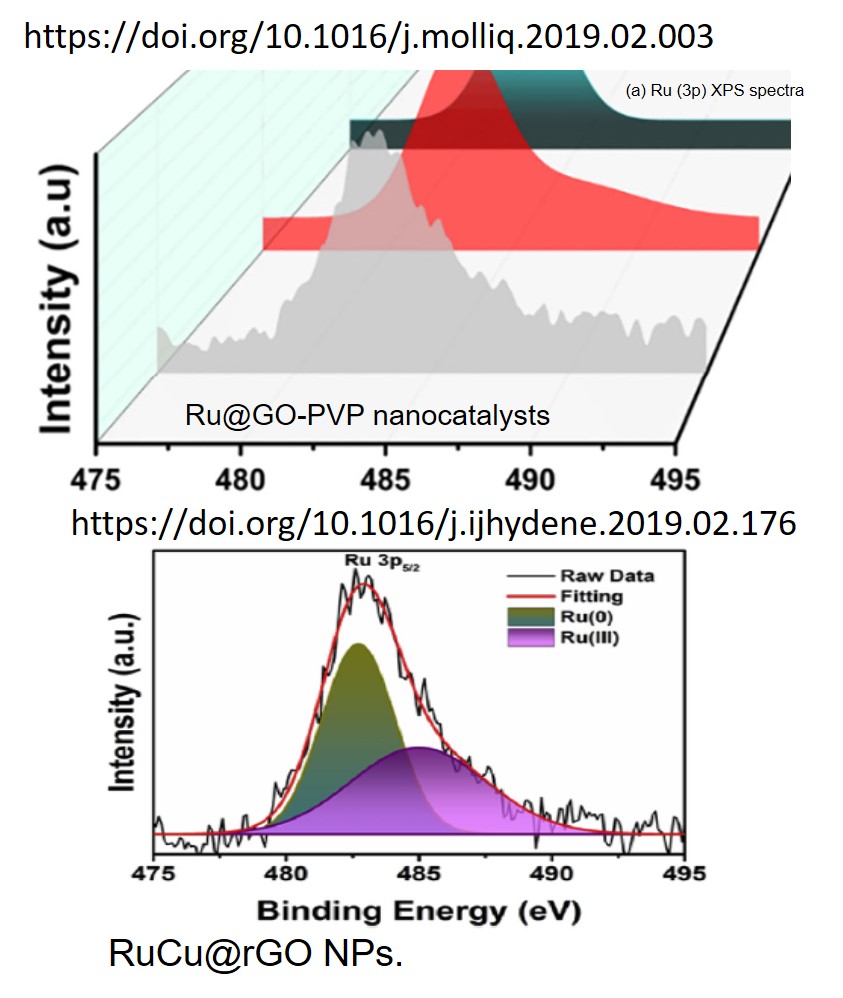

I know why Elsevier and ACS side with Ruizheng Zhao! She is a Communist, science genius and a champion of research ethics, read:
http://www.cmse.sdu.edu.cn/info/1052/14523.htm
“At seven o’clock in the evening, the first “Haiyou” doctoral student academic forum was held online through the Tencent conference. The keynote speaker of this forum is from the School of Materials Science and Engineering doctoral students Li Tao and Zhao Ruizheng, the host is Master student Xu Renjie, Professor Yanyan Jiang and Researcher Wang Chengxiang from the School of Materials Science and Engineering attended the forum as commentators.
At the beginning of the conference, Zhao Ruizheng first shared his Ph.D. academic experience and paper submission writing experience. In the report, she gave a detailed account of her personal profile, Ph.D. academic experience, writing and submission, and graduation planning, and gave a brief introduction to her representative academic achievement-molecular-level heterojunction. In terms of scientific research, she urged everyone to have a rigorous working attitude and keen observation ability. […]
Zhao Ruizheng published academic papers while studying for a degree. Cover articles: cumulative impact factor 175.459, The cumulative number of citations 210. Among them, as the first author Energy & Environmental Science,ACS Energy Letters, Nano Energy. Top Published papers in international academic journals: 5 Articles, cumulative impact factor 77.979, Which was published in ACS Energy Letters The article on was rated as “Hot papers”. During her master’s and Ph.D. period, she successively won the National Scholarship, Outstanding Graduate of Shandong Province, Outstanding Academic Achievement Award of Shandong University, Outstanding Postgraduate, Outstanding Student Cadre, Outstanding Communist Youth League Member, Advanced Individual in Innovation and Entrepreneurship, Advanced Individual in Postgraduate Innovation Practice, and Advanced Individual in Campus Cultural Activities , Mumusili Innovation Scholarship and other awards.”
http://www.cmse.sdu.edu.cn/__local/2/BC/2D/DB138DCC34AF5CE6EEB80C413F6_1A013CE0_5C0D2.bmp
LikeLike
Unbelievable. Zboril should end in prison, so many misconducts. Newest development in his cases completely ruins the belief in fairness of the publishing process in high-impact factor journals, when they are edited by dishonorable persons like Morgenroth and Licence.
LikeLiked by 1 person
So, in several cases, the editors ruled that there was no wrongdoing regarding the Zboril’s data, that they are legit and valid. In that case, Mr. Botur and Mr. Furst should not be considered whistle-blowers, as they purposefully and deliberately defamed and denigrated Mr. Zboril in front of wide scientific audience. I strongly recommend Mr. Zboril to sue everyone involved or associated with these actions to sue them for everything they got.
LikeLiked by 1 person
The editors retracted the papers, Peter dear. Do keep up.
LikeLiked by 1 person
There is some (hidden) poetry in the family name Zbořil. It means, in the Czech: A man who destroyed a thing. Now, people have started widely to call an awful activity of manipulating scientific data: Zbořilizace. It is a new, artificial word that still has a clear meaning in the Czech language: A process of destroying things.
Zbořilizace could be a third Czech word that has entered other languages – after robot and tunelování/tunneling:
https://en.wikipedia.org/wiki/Tunneling_(fraud)
LikeLiked by 1 person
yeah, English version could be “data zborilation”
LikeLiked by 1 person
Pingback: Moravian Rhapsody – For Better Science
sorry, the link to preprint is:
https://chemrxiv.org/engage/api-gateway/chemrxiv/assets/orp/resource/item/60c74622469df4001ef435e0/original/light-and-temperature-assisted-spin-state-annealing-accessing-the-hidden-multistability.pdf
LikeLike
There is a nice&funny preprint/final article discrepancy in fraudster Zboril’s papermill (https://forbetterscience.com/2020/07/13/extraordinary-results-of-the-olomouc-nano-con/)
The preprint with Tucek as co/author:
Click to access light-and-temperature-assisted-spin-state-annealing-accessing-the-hidden-multistability.pdf
shows faked noise-free Mossbauer spectra (Fig. 5).
After all the fuzz with Zboril’s misconducts, the peer reviewed final version of the paper shows real Mossbauer spectra, Tucek as the author replaced with Zboril’s damage controller Navarik. The fulltext of the published article is available at: https://www.researchgate.net/publication/339521524_Light-_and_Temperature-Assisted_Spin_State_Annealing_Accessing_the_Hidden_Multistability
LikeLike
Pingback: Longwei Yin corrections, or what’s the point anyway – For Better Science
Recent developments in fraudster Zboril’s case are not auspicious.
*Another Zboril’s paper with fake results was identified, see: https://pubpeer.com/publications/0C2D2DD982847B4A69CBF79C2029FD
*Palacky University Rector Prochazka fired Dean Kubala from the university in an unlawful move, illegally bypassing faculty and university senates! The “reason” was the use of Zboril’s emails in the court (you remember, the title is: whitewashed-by-acs-and-elsevier-zboril-sues-olomouc-dean-for-bullying), for which Kubala officially got a permission from the rectorate.
*This move made Science Faculty angry and at the yesterday’s (12. 10. 2022) session the Faculty Senate voted for the initiation of procedure of the dismissal of the rector, which is to be discussed at a meeting of the University Senate within next weeks.
LikeLike
Source please?
LikeLike
unfortunately only in Czech, but google translator will do…
rector’s statements:
https://www.zurnal.upol.cz/nc/en/news/clanek/rektor-rozhodl-o-ukonceni-pracovniho-pomeru-dekana-prirodovedecke-fakulty/
https://www.zurnal.upol.cz/nc/zprava/clanek/nemohl-jsem-konat-jinak-rika-k-vypovedi-dekana-prf-rektor-up-martin-prochazka/
dean’s statement:
https://www.prf.upol.cz/nc/zprava/clanek/dekan-martin-kubala-s-vytkami-rektora-nesouhlasim-u-soudu-hajim-fakultu-a-univerzitu/
faculty senate:
https://www.zurnal.upol.cz/nc/zprava/clanek/rektor-up-podle-senatoru-prirodovedecke-fakulty-porusil-zakon-pozaduji-jeho-odvolani/
the topic is covered in https://www.dzurnal.cz/
LikeLike
Pingback: I, Rajender Varma, Highly Cited Researcher – For Better Science
Another two papers of fraudster Zboril et al. on Pubpeer:
https://pubpeer.com/publications/150905656769341145B9F9DF6FB81B#1
https://pubpeer.com/publications/0277ACDC9500D146D0ED111E946C6F#1
At the same time, the team around Zboril to receive Eur 20 million project from the EU operational programme which they called “technologies beyond the nano-world”.
CZ.02.01.01/00/22_008/0004587 Univerzita Palackého v Olomouci Technologie za hranicí nanosvěta
LikeLike